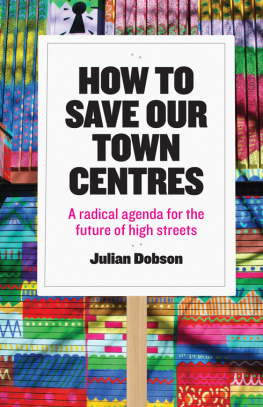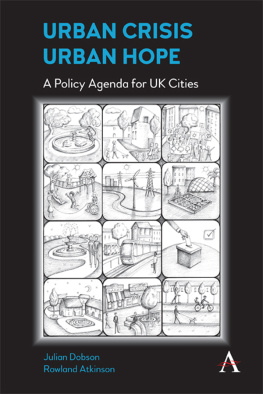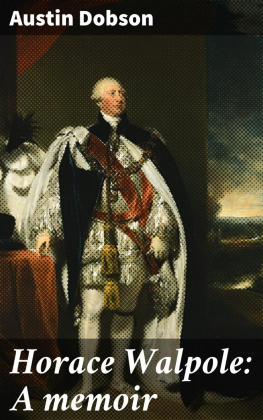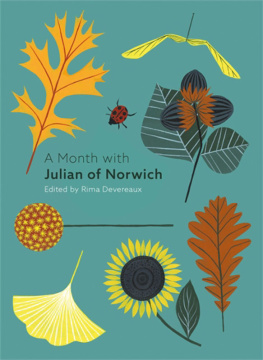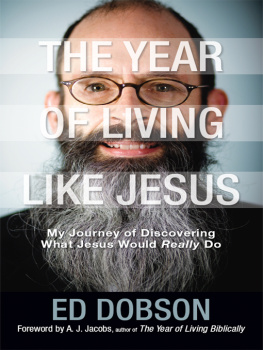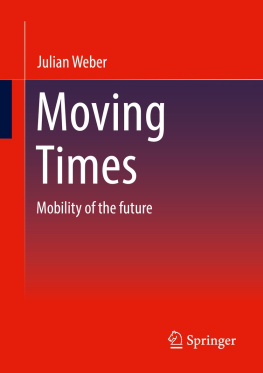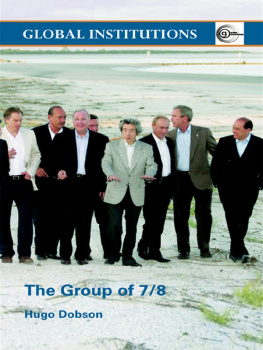
First published in Great Britain in 2015 by
Policy Press University of Bristol 1-9 Old Park Hill Bristol BS2 8BB UK Tel +44 (0)117 954 5940 e-mail
North American office: Policy Press c/o The University of Chicago Press 1427 East 60th Street Chicago, IL 60637, USA t: +1 773 702 7700 f: +1 773-702-9756 e:
Policy Press 2015
British Library Cataloguing in Publication Data
A catalogue record for this book is available from the British Library
Library of Congress Cataloging-in-Publication Data
A catalog record for this book has been requested
ISBN 9781447323952 ePub
ISBN 9781447323969 Kindle
The right of Julian Dobson to be identified as author of this work has been asserted by him in accordance with the Copyright, Designs and Patents Act 1988.
All rights reserved: no part of this publication may be reproduced, stored in a retrieval system, or transmitted in any form or by any means, electronic, mechanical, photocopying, recording, or otherwise without the prior permission of Policy Press.
The statements and opinions contained within this publication are solely those of the author and not of the University of Bristol or Policy Press. The University of Bristol and Policy Press disclaim responsibility for any injury to persons or property resulting from any material published in this publication.
Policy Press works to counter discrimination on grounds of gender, race, disability, age and sexuality.
Cover design by Soapbox Design, London
Front cover image kindly supplied by Julian Dobson
Readers Guide
This book has been optimised for PDA.
Tables may have been presented to accommodate this devices limitations.
Image presentation is limited by this devices limitations.
In memory of Victor, and for all who believe in better.
To be truly radical is to make hope possible, rather than despair convincing.
(Raymond Williams)
Contents
All photographs were taken by the author
Julian Dobson is a writer, researcher, speaker and commentator on towns, cities, and social policy. He is director of Urban Pollinators Ltd (www.urbanpollinators.co.uk), which shares creative solutions to the challenges of place.
He co-founded New Start , the magazine for regeneration practitioners, and previously edited Inside Housing magazine. He is a fellow of the Royal Society of Arts and a board member of the Centre for Local Economic Strategies.
This book has been influenced and improved by many people who have opened my eyes to the state of our towns and cities; who have steered and challenged my thinking; and whose actions have inspired and encouraged me.
Thanks in particular are due to those who work tirelessly to improve the towns and cities they live in, and who have convinced me that this book is worth writing. There are too many of them to acknowledge here, but I would like to pay particular tribute to the group who worked with me on The 21st century agora, a submission to the Portas review in 2011, which was the starting point for this particular journey. Mark Barnes, Joost Beunderman, Eddie Bridgeman, Euan Mills, Mike Riddell, Dan Thompson, Chris Wade and Pam Warhurst have very different perspectives and backgrounds, but a shared passion for creating better places.
Along the way others have stood out in terms of their contribution to action and thought. I have discussed, debated, supported or disagreed with them over several years, and they have helped me form the views I express here sometimes in strong opposition to their opinions! Among them I would particularly acknowledge Joe Barratt, Martin Blackwell, Eileen Conn, Ed Cooke, Bill Grimsey, Neil McInroy, Mary Portas, Leigh Sparks, Jess Steele and Paul Turner-Mitchell.
I am grateful to all those who have asked me to share my thoughts and knowledge in advisory forums, events and conferences in recent years, especially the Royal Society for the Encouragement of Arts, Manufactures and Commerce (RSA) and Mainstreet Australia; and to the many more who have engaged in conversation and debate in social media.
Thanks are due to those who set aside time to be interviewed or to facilitate my visits, especially Jibunnessa Abdullah, Anthony Blackburn, Tessy Britton, Chris Chalkley, Mehul Damani, Simon Danczuk, Michelle Denton, George Ferguson, Malcom Fraser, Stephen Hill, Andrew Heyes, John Lewis, Annemarie Naylor, Frances Northrop, Liz Peace, Ann Petherick, Chris Sands, Leigh Sparks, Neil Stockwell and Paul Turner-Mitchell. Reducing many words of wisdom to a handful of pithy quotes was one of the toughest challenges in writing this book.
Those who read drafts of the text and provided comment and encouragement deserve special appreciation. David Boyle, Leigh Sparks, Martin McNally and Samer Bagaeen have all helped to improve the content and argument. Stuart Mason provided invaluable research assistance at a crucial time, and I am especially grateful for his input. Many thanks also to Emily Watt and Laura Vickers at Policy Press; and finally to my family, for their constant support, patience and encouragement. Needless to say, all errors and omissions are my own.
When I began writing this book, the high street was high on the political agenda in the UK. Politicians and pundits queued up for slots on prime-time TV to pronounce on the future of our town and city centres. Each had their particular bugbear: business taxes, planning rules, parking.
From the start I was clear that something different needed to be said. We have had enough experts from the retail and property trades offering shrivelled visions of the future, in which nothing shakes the interests and institutions that currently dominate our communities. Nobody needs a book explaining how broken systems can be preserved.
If we are serious about creating places for people, we need to delve below the minor crises of particular retailers or high streets and ask how town and city centres currently function, why they fail and who benefits from their successes and failures. In doing so we discover that the free market is anything but free, and competition is anything but fair. An agenda to save our town centres must involve addressing inequities and articulating a broader vision for the places at the heart of our communities.
This book is an attempt to set out such a vision for the long term, building on what is already being achieved in the UK and around the world. The perspective is primarily from the UK, but the issues it grapples with will be pertinent to readers worldwide. It looks at town centres as places of trade and commerce; places of leisure and sociability; places to live in and enjoy. It explores how the failing me towns of the early 21st century can become we towns where all share in a flourishing society.
I hope this vision will remain relevant and helpful for years to come. For that reason I have avoided including long sections on some of the issues of the moment, such as the intricacies of UK planning law or the opportunities that may or may not be offered by particular technologies. They are important questions, but will soon be overtaken by events and politics. Even when referring to particular examples and incidents I have tried to keep an eye on the long-term value of the illustrations I have used.
Any reading of economic, cultural and social issues is inevitably framed by time and geography. Aspects of this book will date, but my hope is that readers in years to come will still be informed and inspired by its content.


